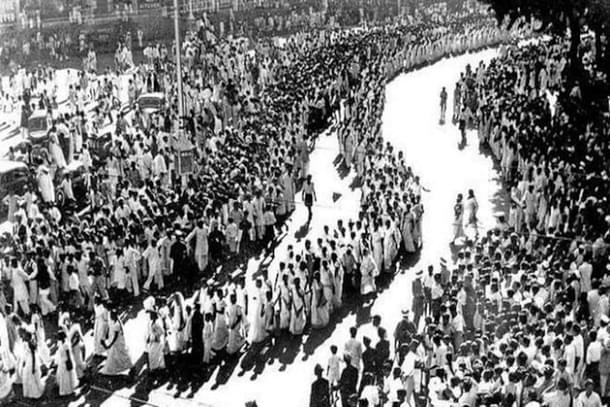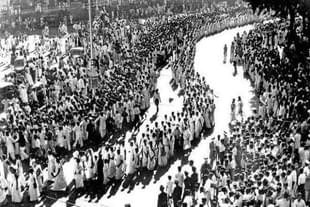Ideas
Why There Is An Urgent Need To Build Independence Memorials Across The Country To Celebrate The Unsung Heroes
Manasa Manjunath
Sep 13, 2022, 06:15 PM | Updated 06:17 PM IST
Save & read from anywhere!
Bookmark stories for easy access on any device or the Swarajya app.


The last flag has been folded and put away, the last national anthem sung, and as 15 August ended so did many people's thoughts about India and her struggle for independence.
As independent India turned 75, we have reached a stage where most part of the population has nobody to hand down stories of the freedom struggle and India under British rule.
Some lucky few may still have grandparents and great-grandparents who would perhaps share stories of the life under the British and the brave tales of an uprising to overthrow them.
For the majority of us, however, those stories are confined to dry history lessons in school or college.
Only the curious among us would venture beyond textbooks to discover brave stories of those lesser-known heroes and heroines who paid a heavy price for the country’s independence with their lives, future and families — a price that many of us do not appreciate.
Stories of the freedom struggle and the tyranny of the British Raj now seem almost fantastic, and if some reactions to the superhit movie RRR are anything to go by, even unbelievable.
As the years pass and the significance of the Independence Day is fading, a sense of condescension is setting in even as stories are lost. Our history books tell the tale of just one man and his party. The millions of Indians that came before and fought stand at risk of being forgotten.
It is a national shame that even 75 years after Independence, the larger than life shadows of ‘Gandhianism’ and ‘Nehruvianism’ continue to eclipse the patriotism of ordinary Indians.
Indeed there may be nary a blade of grass or speck of dirt in the sub-continent that hasn't been stained by the blood and tears of these martyrs.
However, many local and regional heroes and heroines that fought daily battles with the British are today only remembered in their families, and villages and their contribution to this great nation is hardly recognised.
The crusaders of the first war of independence of 1857 had to wait for 50 years for Vinayak Damodar Savarkar to acknowledge their fight that the British had dismissed as a mutiny.
As inheritors of the fruits of their labour, we cannot let our heroes to languish under the tyranny of colonial definitions or the self-importance of the self-styled ‘harbingers-of-independence’ party.
It is with utmost urgency that we must undertake a national mission to put on record the names and stories of India's lesser-known freedom fighters for posterity.
In this vein, I request Prime Minister Narendra Modi to undertake the task of establishing an independence memorial in every single city, town and village across the country to showcase the stories of valour and bravery of the local heroes in the fight for independence.
The memorials should pay homage to the architecture of the region and feature a brief history of the British occupation of India and our fight for independence.
The memorials should document the role of the specific city, town etc, in the fight for independence, besides physical artefacts like letters, articles, photos, audio/video recordings of surviving freedom fighters, and their narration of their experiences and their message to future generations.
At a time when calls to break up the country reach fever-pitch, the independence memorial would act as a unifying factor.
The memorials must serve as a reminder of the struggle we undertook as one nation. We may differ from one and other in appearance just like the memorials’ exteriors, but we hold inside us a common Indian spirit — a physical expression of our unity in diversity.
The multitude of memorials would also impress upon future generations that in the fight against oppression and tyranny every single voice counts.
The memorials would act as anchors that ground us in our history and be reminders of the heavy price we paid for our independence, so we truly treasure it.
They would serve to not just preserve our history for future generations but also educate them about it.
Our freedom fighters would be role models and their stories would inspire generations of Indians to serve the motherland.
Last but not the least, the memorials would serve as an attraction to travellers as well and open up previously unknown locations to tourism and boost the region’s revenue.
Over the last 75 years there has been a sustained agenda — across academia, media and cinema — to undermine and dismiss the efforts of millions of Indians in the struggle for independence and the over glorification of one party and the deification of one man in it.
These memorials would first and foremost acknowledge the efforts of those Indians — many of whom died knowing they would never live to enjoy the fruits of their labour.
A true celebration of the Azadi Ka Amrit Mahotsav would be incomplete without acknowledging, preserving and propagating the lives and work of millions of ordinary Indians who played an extraordinary role for their beloved motherland.





